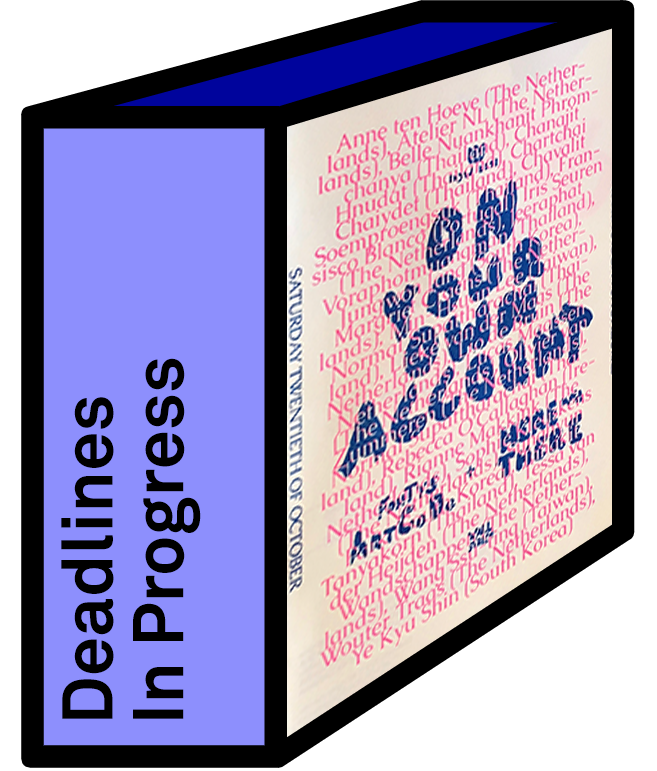The Small Print
Publishing information hidden in plain sightA
massive amount of textual information is published during Dutch Design Week.
The Small Print examined the publication overload by making this phenomenon, and the entirety of published material, the subject of yet another publication. We asked: can we translate and transform this published information into poetic data?
The Small Print examined the publication overload by making this phenomenon, and the entirety of published material, the subject of yet another publication. We asked: can we translate and transform this published information into poetic data?
We
delight in the seemingly opposing forces of print publishing and digital
publishing: speed, temporality, and accuracy of information are just a few
areas in which ‘online’ and ‘offline’ publications differ greatly. In The Small
Print project digital and print publishing become one: long-distance and
on-the-spot printing come together.
Every day, our editors and contributors tirelessly gathered information in various locations. The goal was playful data mining: our inquiries were strictly subjective and research methods varied. Which words were trending, how many abbreviations are used in design speak, which words grant value to design? Using a mobile phone app, findings were sent directly to the printer.
Every day, our editors and contributors tirelessly gathered information in various locations. The goal was playful data mining: our inquiries were strictly subjective and research methods varied. Which words were trending, how many abbreviations are used in design speak, which words grant value to design? Using a mobile phone app, findings were sent directly to the printer.
The Small Print was printed with a tiny thermal
printer, welcoming impermanence as an integral aspect of this print publication.
Although the scrolls of paper were bound into a book afterwards, their content
will fade in time.













